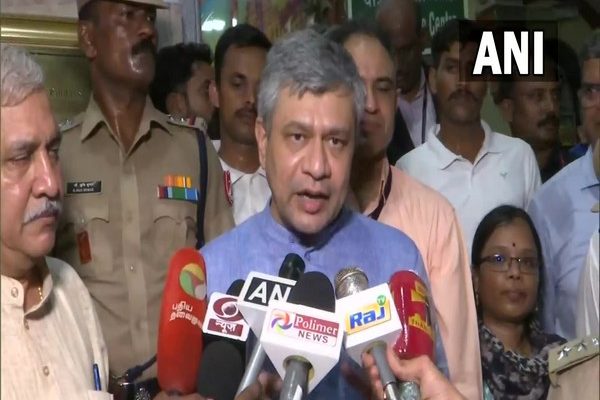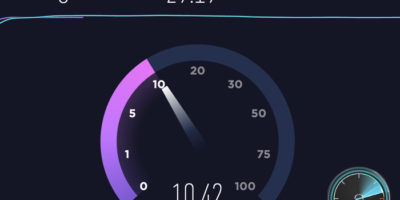India recently achieved a great milestone by making its first 5G call by Ashwini Vaishnav, a research scholar from IIT Bombay. She used the 5G network provided by the telecom provider Jio. This is a major step forward for the nation and its telecommunications industry.
What is 5G?
5G is the fifth generation of mobile network technology. It is the successor to the 4G LTE network and promises to deliver faster speeds and better coverage than ever before. 5G is expected to revolutionize mobile networks by providing faster data speeds, higher bandwidth, lower latency, and improved reliability. It will also enable more connected devices and the growth of the Internet of Things (IoT). India’s first 5G call was recently made by Ashwini Vaishnav, a scientist at the Department of Telecommunications.
This milestone is a testament to India’s commitment to the advancement of mobile technology and the development of the country’s digital economy. 5G will open up a new world of possibilities for Indian businesses, allowing them to perform faster, smarter and more efficient operations. Additionally, 5G will enable richer mobile experiences for users, allowing them to access more data-intensive applications and services. With the launch of 5G, India is now one step closer to becoming a leader in the digital revolution.
What is Special about India’s First 5G Call?
India’s First 5G Call by Ashwini Vaishnav is a landmark achievement for the country’s telecommunications sector. Not only does this signal the beginning of a new era of wireless technology, but it is also a reflection of India’s commitment to innovation and development.
The 5G Call is special because it marks the first time that India has adopted the 5G technology and has successfully completed a 5G call. This is an important milestone that demonstrates the country’s ability to stay ahead of the curve and embrace new technologies. Additionally, the 5G Call by Ashwini Vaishnav is a testament to India’s continued progress in the field of telecommunications, which has seen the country become one of the world’s leading telecom providers.
The 5G Call is also special because it offers users an improved experience with a faster connection, higher data speeds, and better quality of service. This is a significant development that will benefit both consumers and businesses alike, and it is a demonstration of India’s commitment to improving its telecommunications infrastructure.
Significance of 5G in India
5G technology is a much-awaited revolution in the telecom industry in India. The successful completion of India’s first 5G call by Ashwini Vaishnav has marked a significant milestone in the country’s ongoing digital transformation journey. 5G technology offers enhanced data speed, increased bandwidth, lower latency and greater reliability compared to existing 4G networks.
This will enable users to access high-speed internet on their mobile devices with ease. With 5G, users can enjoy seamless video streaming, augmented reality/ virtual reality applications, and faster access to cloud applications. Moreover, it is expected to revolutionize the Industrial Internet of Things (IIoT) and enable more efficient and secure communication in smart cities. With its high-speed, low-latency and reliable connectivity, 5G technology can help India realize its ambitious Digital India vision.
Furthermore, it will enable the development of a robust digital infrastructure and facilitate the growth of smart cities, digital healthcare, e-governance, digital payments and more. Thus, the successful completion of India’s first 5G call by Ashwini Vaishnav is a significant achievement for the country and a crucial step towards realizing the Digital India vision.
Benefits of India’s First 5G Call
The successful completion of India’s first 5G call by Ashwini Vaishnav, a telecom expert, is a momentous occasion in the nation’s telecommunications industry. The call was conducted over a 5G network, which is expected to revolutionize the way we communicate. The 5G network will bring with it numerous benefits, such as faster speeds, lower latency, and improved network capacity.
The 5G network will allow data to be transferred much faster than the current 4G network, allowing for faster downloads, streaming and large file transfers. Additionally, the 5G network is expected to reduce latency, meaning that consumers will experience less lag time when using their devices. This will make it possible for applications and services to load more quickly and provide a more responsive user experience.
Moreover, the 5G network will have a higher capacity than the current 4G network, allowing more people to use the same network without experiencing slowdowns or connection drops. All of these benefits will make it possible for more people to stay connected and enjoy high-speed internet access. The successful first 5G call by Ashwini Vaishnav is a major milestone for India’s telecom industry and will be beneficial for both consumers and businesses alike.
Necessary Infrastructure for 5G Call
India’s first 5G call by Ashwini Vaishnav has been a landmark moment for the country, as it marks a major milestone in the path towards introducing 5G infrastructure. To successfully make this call, India must have the necessary infrastructure in place. This infrastructure includes more than just hardware and software, but also a well-developed network of cell towers, mobile phones, and other communication devices that are 5G-capable.
Furthermore, the 5G network must be able to support faster data speeds, better latency, and higher-quality voice calls. To achieve this, there must be an increased number of base stations and distributed antenna systems, as well as an upgrade of existing base stations to 5G-compatible equipment.
Additionally, the government must also invest in the necessary spectrum to allow the 5G network to operate. Ultimately, the necessary infrastructure must be in place to ensure that 5G calls can be made successfully. Ashwini Vaishnav’s successful 5G call is a testament to the progress India has made in terms of 5G infrastructure, and it is hoped that with further investment, India can become a leader in 5G technology.
Challenges for India to Adopt 5G
With the launch of the world’s first 5G call in India by Ashwini Vaishnav, India is now on the path to becoming a 5G superpower. However, the road to 5G adoption in India is not without its challenges. The biggest challenge is the availability of the necessary infrastructure to support 5G technology.
India’s telecom infrastructure is largely inadequate to support 5G, especially in rural areas. The government has taken steps to address this issue such as the BharatNet project, which aims to provide high-speed internet access to all citizens. But a lot more needs to be done in terms of increasing the bandwidth and improving the quality of the telecom infrastructure.
Another challenge for India to adopt 5G is the lack of spectrum. India has the second lowest spectrum allocation per user in the world, which is inadequate for 5G adoption. This is compounded by the fact that most of the available spectrum is shared between different services and used inefficiently. The government is trying to address this issue by increasing the availability of spectrum, but it will take some time for these measures to bear fruit.
The last major challenge is the cost of 5G technology. India is a price sensitive market and the cost of 5G technology is high compared to other countries. This makes 5G adoption difficult, especially for smaller telecom operators. The government is trying to address this issue by providing incentives to telecom operators to invest in 5G infrastructure.
Conclusion
India’s first 5G call by Ashwini Vaishnav is a milestone for the country’s telecommunications industry. It marks the beginning of a new era of high-speed internet and communication capabilities. With this call, India has joined the ranks of countries with 5G networks, and it is likely that the country will continue to benefit from the technological advancements that 5G brings.
As India continues to move forward with its 5G network, it will be interesting to see what other advancements come out of the country. Ashwini Vaishnav’s pioneering call is a testament to the potential of 5G technology and its ability to revolutionize the way we communicate.





















Comments